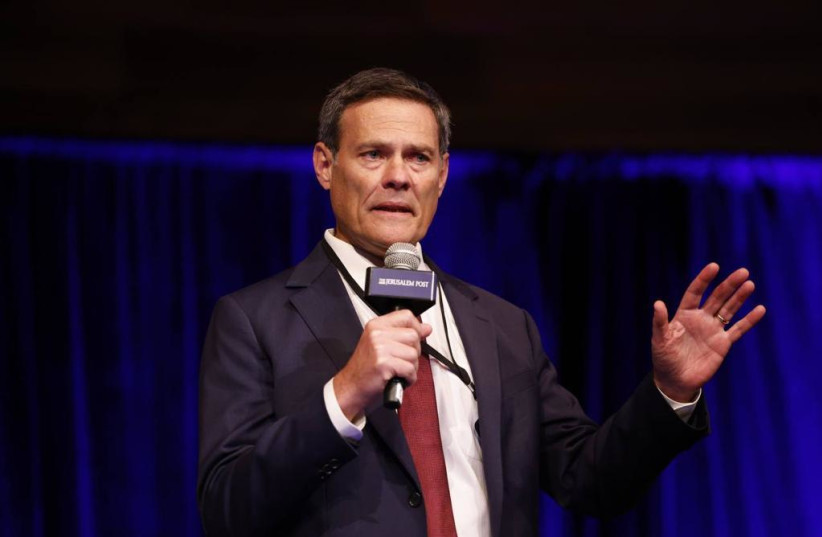David Siegel, president of Friends of ELNET, an NGO dedicated to strengthening Europe-Israel relations based on shared democratic values and strategic interests, stated that Israel needs to be robust and proactive in its foreign relationships, amid the strategic challenges it faces today.
Speaking at The Jerusalem Post Conference in New York on Monday, Siegel explained that Israel is in a dangerous and demanding strategic environment, due to Russia’s invasion of Ukraine, Iran’s nuclear program and upgraded strategic relations with Russia and China, and the growing friction between the US and China. “It is no longer a one-dimensional world of Pax Americana,” he said, adding that the perception of declining US influence in the Middle East is real and having an impact on strategic stability in that part of the world.
Europe is Israel's largest trading partner
“Israel needs to compete and be innovative and agile,” said Siegel. “To be agile, we need allies and to understand the reality around us.” Europe, together with the US, he said, is the core of the Western world, and Europe plays a significant role in relations with Israel, financially and strategically.

Europe is Israel’s largest trading partner, said Siegel, and as the largest funder of Israeli innovation, is a key defense partner. One million Jews live in Europe, and 30 European countries have officially adopted the IHRA definition of antisemitism. Siegel also noted that Germany, which operates the European Sky Shield Initiative, which includes 17 European countries, is considering purchasing the Israeli-made Arrow 3 anti-ballistic missile system.
Having Europe as part of the Western camp working with Israel and its Arab allies is becoming more urgent and important, said Siegal, who announced the launching of a new regional ELNET office in Central and Eastern Europe. “The launching of ELNET CEE,” he said, “is a pivotal milestone in our mission to strengthen the bonds between Central and Eastern Europe and Israel. Given the evolving developments in Europe, it is crucial for us to work together in the face of new regional challenges.”